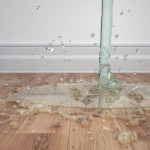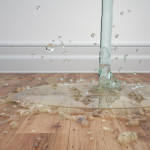IICRC Certification Classes Overview
The IICRC offers a variety of certification classes tailored to different aspects of cleaning and restoration. Here are some of the most prominent classes:
Water Damage Restoration Technician (WRT) This class provides an in-depth understanding of water damage, its causes, and how to effectively restore affected properties. WRT IICRC Classes The curriculum covers extraction, drying techniques, and the use of various equipment. Professionals learn how to handle everything from small leaks to large-scale flooding, ensuring properties are returned to their pre-damage condition.
Applied Structural Drying Technician (ASD) Building on the WRT class, the ASD class delves deeper into the science of drying. It focuses on techniques for drying out structures and contents efficiently, minimizing secondary damage and reducing restoration time. This class is ideal for those who want to specialize in structural drying and aim to enhance their skills with advanced methods and tools.
Fire and Smoke Restoration Technician (FSRT) The FSRT class teaches professionals how to manage fire and smoke damage restoration. The curriculum includes understanding fire behavior, types of smoke and residues, and techniques for cleaning and deodorizing affected areas. Professionals also learn about the proper handling and disposal of damaged materials, ensuring safety and compliance with health regulations.
Carpet Cleaning Technician (CCT) Focused on carpet cleaning, this class covers various cleaning methods, such as hot water extraction, bonnet cleaning, and encapsulation. Professionals learn about different carpet types, fibers, and how to treat various stains effectively. This class is essential for those who want to excel in carpet maintenance and offer top-notch services to their clients.
Applied Microbial Remediation Technician (AMRT) The AMRT class is designed for professionals dealing with mold and other microbial issues. The course covers identification, safe removal, and prevention of mold in residential and commercial properties. It emphasizes health and safety practices, including the use of personal protective equipment (PPE) and containment strategies to prevent cross-contamination.
Odor Control Technician (OCT) This class teaches professionals how to identify and eliminate odors caused by various sources, including smoke, pets, and biological contaminants. Techniques include the use of chemical agents, ozone treatments, and thermal fogging. Mastering these skills is crucial for restoring properties to a clean, odor-free state after a disaster.
Benefits of IICRC Certification
Obtaining IICRC certification offers numerous benefits. Firstly, it enhances professional credibility, demonstrating a commitment to industry standards and continuous learning. IICRC Water Damage Restoration Certification Certified professionals are often preferred by clients and employers, leading to better job opportunities and higher earning potential.
Secondly, IICRC classes provide practical, hands-on training that prepares professionals for real-world challenges. The knowledge and skills gained from these courses enable them to perform their duties more effectively and efficiently, reducing downtime and costs for clients.
Lastly, being part of the IICRC community provides access to a network of industry experts and resources. Certified professionals can stay updated with the latest industry trends, technologies, and best practices through continuing education opportunities and industry events.






Comments